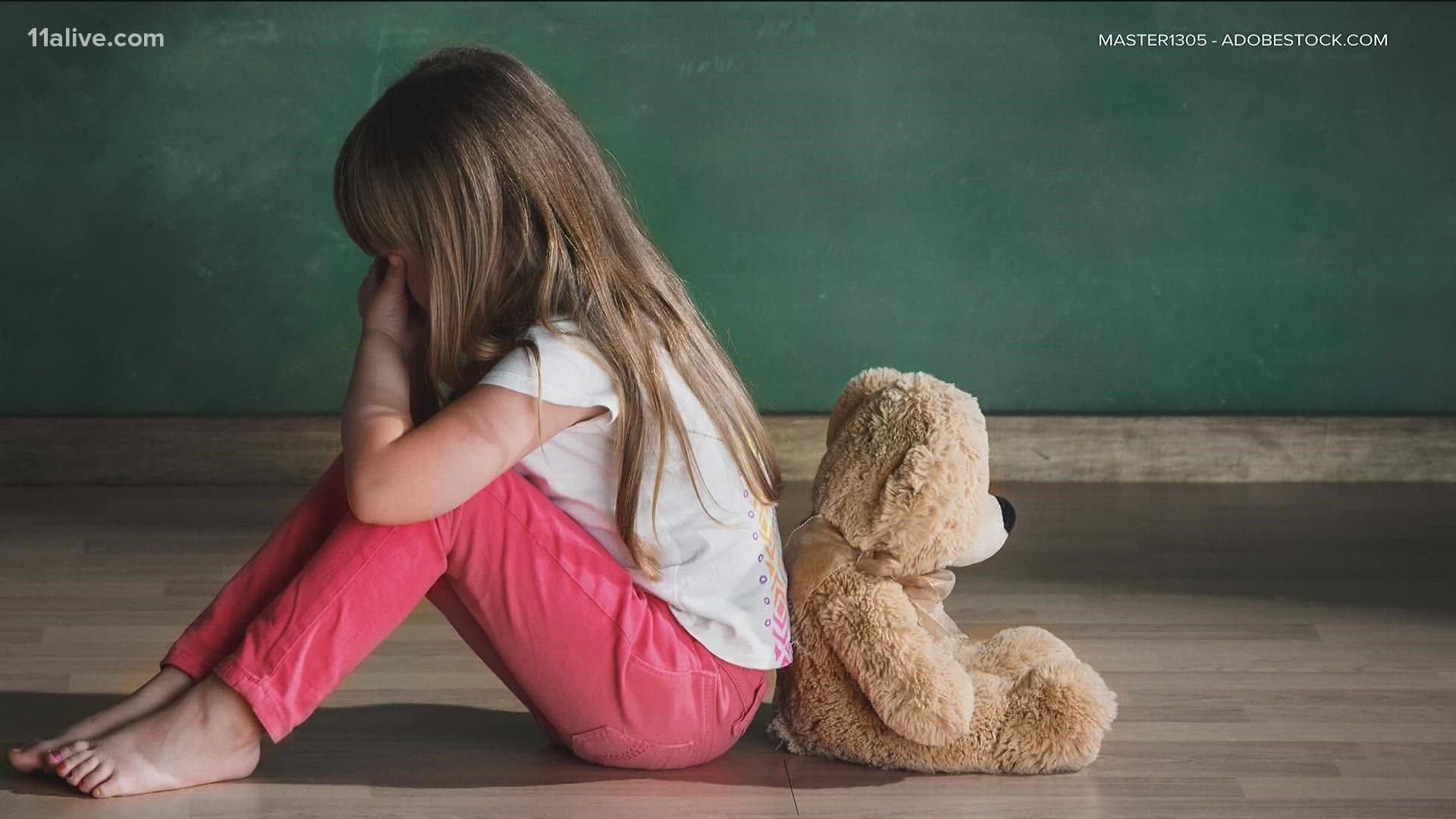ATLANTA — The mental health needs of children across the country are getting heightened focus following the COVID-19 pandemic.
Now, the American Academy of Pediatrics (AAP), the American Academy of Child and Adolescent Psychiatry (AACAP), and the Children’s Hospital Association (CHA) are collectively declaring a national state of emergency in an effort to garner attention and change policy around the issues of child and adolescent mental health.
“As pediatricians, as a child and adolescent psychiatrists, and as children's hospitals, we have been seeing really dramatic increases in the number of children with mental health concerns in our clinics, in our offices and our hospitals,” Dr. Lee Savio Beers, President of the American Academy of Pediatrics, told 11Alive. “As you know, mental health was a concern, even before the pandemic began, but it really has reached a tipping point, and we think that the time to act is now.”
According to the AAP, rates of childhood mental health concerns and suicide rose steadily between 2010 and 2020, and by 2018 suicide was the second leading cause of death for youth ages 10-24. Experts believe the isolation and stressors from the pandemic have increased concerns.
“Even before the pandemic began, suicide was the second leading cause of death for adolescents, and we've only been seeing increasing rates of suicidality and other mental health concerns such as depression and anxiety or eating disorders,” Dr. Beers said. also adding that doctors are also seeing an uptick in children whose mental health concerns are more difficult to treat given their severity.
In addition, experts have seen the mental health crisis disproportionately impact minority communities. At least 140,000 children in the United States have lost a parent or other primary caregiver to COVID-19, according to a recent study published in Pediatrics, the official journal of the American Academy of Pediatrics. The study notes racial and ethnic minorities are up to 4.5 times more likely to experience such a loss during the pandemic.
“Not only have they been impacted by the systemic racism in our institutions, but also the impacts of racism on our mental health,” Dr. Beers explained. “And we're also seeing disproportionate impacts for children who live in low-income families. Their families are often subject to more stress because of their economic conditions [that] put additional stress on their mental health, and so we're really seeing a disproportionate impact on groups of children. And I think it's also why it's so important to make sure as we're allocating resources as we're thinking about how we provide support, we make sure we provide extra support to those areas.”
According to experts, every adult who interacts with a child, whether a parent, caregiver, teacher, or coach, has the opportunity to make a difference in terms of that child’s mental health. Dr. Beers said that means ‘keeping our eyes open’ for any changes or concerning behavior that could indicate a child is struggling.
“If you are a parent and you're worried about your child be sure you reach out to your pediatrician or to a child and adolescent psychiatrist or the whole provider to discuss your concerns,” Dr. Beers said. “Just like any condition, the earlier we can identify and treat mental health concerns, the better.”
Because access to care remains an issue of concern, the AAP, AACAP and CHA are calling on lawmakers and advocates to address resources and support for the mental health crisis.
The group objectives:
- Increase federal funding dedicated to ensuring all families and children, from infancy through adolescence, can access evidence-based mental health screening, diagnosis, and treatment to appropriately address their mental health needs, with particular emphasis on meeting the needs of under-resourced populations.
- Address regulatory challenges and improve access to technology to assure the continued availability of telemedicine to provide mental health care to all populations.
- Increase implementation and sustainable funding of effective models of school-based mental health care, including clinical strategies and models for payment.
- Accelerate adoption of effective and financially sustainable models of integrated mental health care in primary care pediatrics, including clinical strategies and models for payment.
- Strengthen emerging efforts to reduce the risk of suicide in children and adolescents through prevention programs in schools, primary care, and community settings.
- Address the ongoing challenges of the acute care needs of children and adolescents, including shortage of beds and emergency room boarding by expanding access to step-down programs from inpatient units, short-stay stabilization units, and community-based response teams.
- Fully fund comprehensive, community-based systems of care that connect families in need of behavioral health services and supports for their child with evidence-based interventions in their home, community or school.
- Promote and pay for trauma-informed care services that support relational health and family resilience.
- Accelerate strategies to address longstanding workforce challenges in child mental health, including innovative training programs, loan repayment, and intensified efforts to recruit underrepresented populations into mental health professions as well as attention to the impact that the public health crisis has had on the well-being of health professionals.
- Advance policies that ensure compliance with and enforcement of mental health parity laws.

